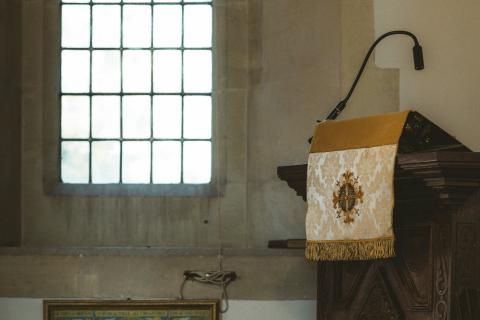
A few weeks ago, Pope Leo released the apostolic exhortation “Dilexit te,” concerning “love for the poor.” It’s the first formal document to be penned during his pontificate, and it makes a zealous exhortation indeed: charitable works, it notes, are the “burning heart of the Church’s mission.”
Interestingly, the document includes a section on “The Church and the education of the poor.” Pope Leo recalls Pope Francis’s line on this topic, with both Holy Fathers concurring that “education has always been one of the highest expressions of Christian charity.” Pope Leo goes on to praise religious congregations that have been raised up precisely to commit themselves to that sort of love, the sort in which “‘intellectual charity’ was placed alongside ‘material charity,’ with ‘spiritual-pastoral charity’ at the top, as an indispensable dimension of any charitable action aimed at the good and integral development of the person.”
For those committed to the work of education, as students, teachers, or administrators, the point is a stern reminder: to be formed well in mind is not an expendable luxury. It’s a task that dignifies and humanizes each person, that enables one to find his or her footing in those truths and realities that bring hope, healing, and salvation. It’s not just bellies that go hungry and bodies that go without shelter. To be impoverished in mind, unprotected from the lies and illusions that swirl in our culture, is an equal affront to who we are, and to the fullness of life to which we are called.
Of course, the point is practical, too: without the intellectual resources to negotiate and administer the material ones, material aid can only go so far. A one-off gift, or the one-off offer of a helping hand, doesn’t necessarily liberate for a self-sustaining, unhindered life. Human beings are much more complex, both socially and individually, than that. Their material realities are affected by and come to bear on their spiritual and intellectual ones, and vice versa. And so it really is only an integral care for the wholeness of the person that stands a chance of making the most meaningful, lasting difference: the kind of care matched by one community of Sisters, who “taught literacy, evangelized, took care of practical matters of daily life, elevated [students’] spirits through the cultivation of the arts, and, above all, formed consciences.”
“For the Christian faith,” the document goes on, “the education of the poor is not a favor but a duty.” Surely these “poor” include those who are intellectually poor even if not materially, as well as those who are poor in mind as well as in circumstance. Whomever we’re encountering, and whatever the apparent richness or poverty of their position, it’s good to remember that passing on the intellectual riches we’ve been given is not only a privilege and joy, but a sacred trust – a duty commanded of us, indeed.


